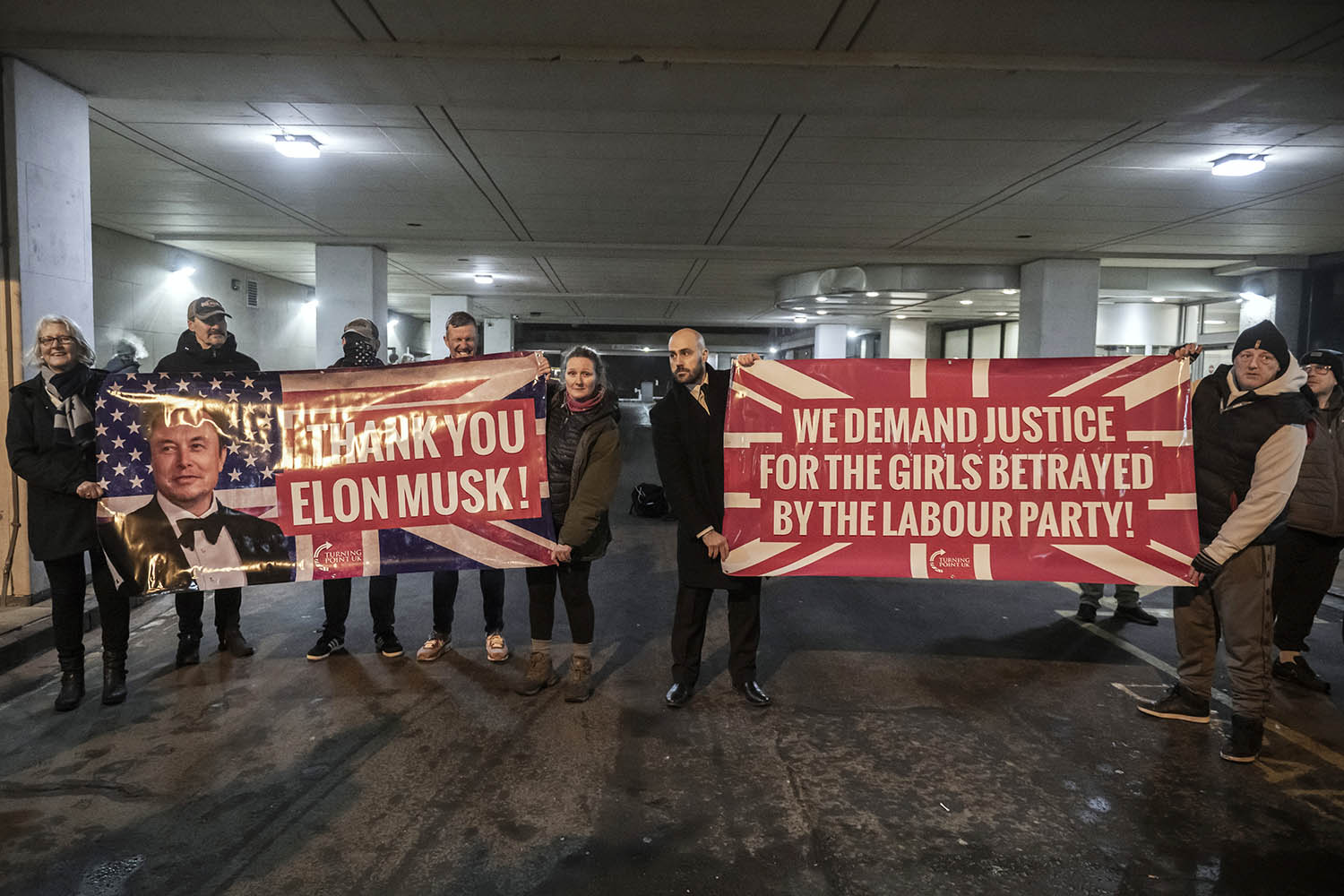It was in the wood-panelled halls of the House of Commons that the home secretary, Yvette Cooper, announced a national inquiry into grooming gangs in the UK last Monday.
But since the reporter Andrew Norfolk at the Times exposed the scandal in 2011, the story has played out as much online as it has in police stations and council chambers.
Keir Starmer, the prime minister, might not admit it, but it is unlikely that a national inquiry would have been commissioned if it hadn’t been for Elon Musk. The inquiry is the direct consequence of Louise Casey’s rapid audit, which Cooper announced on 16 January.
Musk had spent the previous two weeks elevating a national issue to the status of a global news story. The owner of Tesla and X posted hundreds of times about grooming gangs to more than 200 million followers.
The audit that followed identified a culture of “blindness, ignorance and prejudice” that had led to serious failures in dealing with grooming gangs. It criticised the “adultification” of teenage girls by police and children’s services, and said that poor data had led people to dismiss claims about “Asian grooming gangs”.
The national inquiry will seek redress for these injustices.
But many of the posts that raised the profile of the issue relied on misinformation. This included the repeated claim that 250,000 girls had been raped by “migrant gangs”, which has circulated online for years and was calculated by extrapolating from local numbers in a handful of towns.
Not all the misinformation originated in the usual places.
Nazir Afzal, the former chief crown prosecutor for north-west England, talked to BBC Radio 4 in October 2018. In this interview, Afzal tried to demonstrate the mess he took over in 2011 by referring to a Home Office circular sent to all police forces in the country three years earlier. He claimed it said that young girls exploited across the country had “made an informed choice about their sexual behaviour” and that as a result “it’s not for you police officers to get involved in”.
Afzal presented this as evidence of the failure of authorities to listen to what victims had experienced. A few weeks later, the Home Office replied to a freedom of information request saying it couldn’t identify such a circular. By that point, the claims had spread.
Newsletters
Choose the newsletters you want to receive
View more
For information about how The Observer protects your data, read our Privacy Policy
In November Afzal’s claim exploded into rightwing circles when it was posted on the Ukip website, and shared by Paul Joseph Watson, the conspiracy theorist and member of the so-called “alt right”. By July 2019 it had picked up such momentum that Jacqui Smith, home secretary under Gordon Brown in 2008, publicly contacted Afzal on Twitter. She told him she was receiving “personal and misinformed abuse” because of his claim.
About five and a half years later, the circular became a central pillar of Musk’s intervention into the grooming gangs scandal. In one post, the billionaire falsely attributed the “informed choice” claim to Starmer.
In another, he alleged that “Gordon Brown committed an unforgivable crime against the British people”, alongside a video of the campaigner Maggie Oliver talking about the alleged circular. In a third, he said that Brown “sold those little girls for votes”. These three posts alone generated more than 50m impressions.
A spokesperson for Brown said at the time that there was no basis for the allegations made against him. Afzal told The Observer that “several unconnected police officers” had told him about the circular, but that he now believes that this was being used as an excuse “for their inaction and incompetence”.
He said he has never seen the circular and that he “regrets amplifying it”, and is “saddened at how conspiracy theorists weaponised it”.
Anyone following the grooming gangs story online in recent years could see how signifcant Musk’s intervention was in January. In Oldham, Raja Miah, an activist whose views were amplified by Musk, went from sharing weekly “transmissions” with a modest number of loyal followers to speaking on the Spectator podcast and having his views seen by millions.
But the apotheosis of Musk’s posts was last week’s announcement of a national inquiry.
An uneasy truth may be that, on this occasion, misinformation gave the grooming gang scandal the attention it needed.
Photograph by Anthony Devlin/Getty Images

